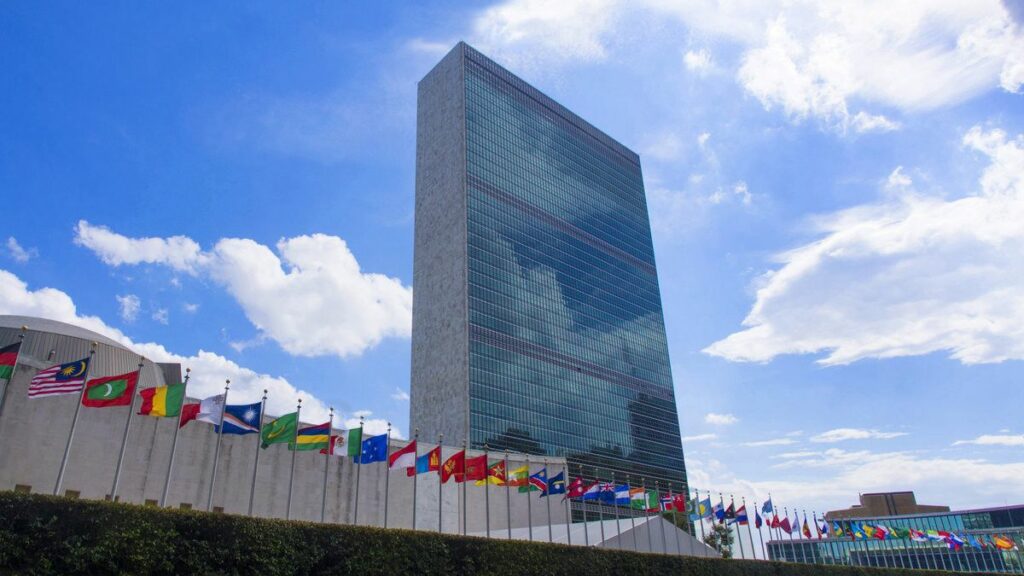IOF has submitted the following statement, joined by organizations around the world, to all United Nations ambassadors in New York for the 62nd session of the Commission for Social Development, 5 to 14 February 2024.
Central, Indispensable, and Urgent:
The Key Component in Social Policy for Poverty Eradication
Dear Excellency:
As the 2024 Commission for Social Development commences its work, we applaud its focus on the priority theme of “Fostering social development and social justice through social policies to accelerate progress on the implementation of the 2030 Agenda for Sustainable Development and to achieve the overarching goal of poverty eradication.” With almost 700 million people around the world living in extreme poverty, the urgency of addressing this dire challenge has never been greater.
As the Commission wrestles with the necessarily multi-faceted policies and procedures designed to accelerate progress toward poverty eradication, we respectfully call attention to the one component which wise leaders, including the drafters of the Universal Declaration of Human Rights, have declared as foundational to the strength, stability, and development of society: the protection and promotion of the family.
Of all the rights enumerated in the UDHR, only one is held by a group unit—the family. And not just any family, but the natural family, the natural union of a man and a woman, constituting the very foundation of civilization: “The family is the natural and fundamental group unit of society and is entitled to protection by society and the State” (Article 16.3). Complementary to that unique right is another whose uniqueness is marked by the only occurrence in the UDHR of the word special: “Motherhood and childhood are entitled to special care and assistance” (Article 25.2).
All of this was captured by Ambassador Michael Novak when he emphasized, “The roles of a father and a mother, and of children with respect to them, is the absolutely critical center of social force,” for the family is “the seedbed of economic skills, money habits, attitudes toward work, and the arts of financial independence,” and is “a stronger agency of educational success than the school” and “a stronger teacher of the religious imagination than the church. Political and social planning in a wise social order begins with the axiom ‘What strengthens the family strengthens society.’”
Strengthening the natural family empowers children to rise above poverty. As noted by the Brookings Institution, “The family structure in and of itself is an important factor in reducing poverty: children raised in single-parent families are nearly five times as likely to be poor as those in married-couple families.”
The UDHR does not specify the level of protection to which the family is entitled, but Article 10.1 of the International Covenant on Economic, Social and Cultural Rights leaves no doubt: “The widest possible protection and assistance should be accorded to the family, which is the natural and fundamental group unit of society.”
This international covenantal obligation is not just one of many. Speaking to the General Assembly at the 10th anniversary of the International Year of the Family, U.S. representative Wade Horn declared, “The state’s foremost obligation is to respect, defend, and protect the family as an institution.”
And what happens when the family fails? Mexico’s Ana Teresa Aranda warned, “It is no secret that the vulnerability suffered by our peoples—insecurity, crime, abuse, abandonment of the elderly, orphaned children and violence—causes enormous imbalances and obliges us to spend millions on institutional policies that in the end can do no more than manage those ills…. If we wish to address the causes, we must look at the family.”
No wonder the family has been recognized by leaders around the world as “a vital partner” in achieving international development goals (Secretary-General Kofi Annan), “the main instrument of societal transformation” (Ambassador Iftekhar Chowdhury), and a “driving force” for “social progress and development” (Her Highness Sheikha Moza Bint Nasser).
To assist in the formulation of effective social policy for the eradication of poverty, we offer two books on the indispensable role of family capital in achieving the SDGs, available online for free at www.familycapital17sdgs.org, and in published form in the Dag Hammarskjöld Library, where they have been repeatedly displayed as featured titles. We further urge:
- Systematic mainstreaming of the family in plans and programs to eradicate poverty and achieve sustainable development.
- Affirmation of the unique and irreplaceable contributions of mothers and fathers to the lives of their children, with special emphasis on responsible and caring fatherhood.
- Focus on strengthening healthy marriages and encouraging marital stability and fidelity.
- Encouraging and empowering functional, nurturing families as the surest safeguard of motherhood and childhood.
- Special assistance for displaced families, single mothers with children, and children without parents.
Perhaps author Alex Haley said it best: “The family is our refuge and our springboard; nourished on it, we can advance to new horizons. In every conceivable manner, the family is link to our past, bridge to our future.”
Respectfully,
- International Organization for the Family
- United Families International
- Center for Family and Human Rights
- Universal Peace Federation
- American Family Advocates
- CitizenGO, Spain
- Family Policy Institute, South Africa
- Latin American Alliance for the Family
- Family First, New Zealand
- HazteOir, Spain
- REAL Women of Canada
- FamilyPolicy.RU Advocacy Group, Russia
- Native American Fatherhood & Families Association
